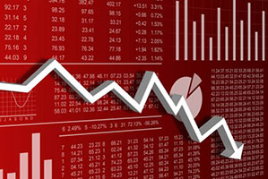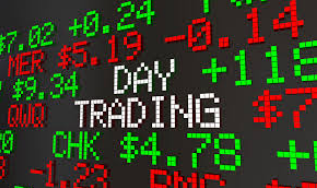How do I invest in the stock market? A complete guide to trading shares

When you think of investing and trading, there's a good chance that stocks (or shares) and the stock market are what first comes to mind. But how and why invest in stocks? Learn the fundamentals of investing in stocks, including the approaches and skills you'll need to invest and trade with confidence.
A share is like a small part of a business. You only need to own 1 stock to claim ownership and claim a portion of the company's assets and profits. In general, stocks form the basis of most portfolios and have historically outperformed other investment types over the long term. There are many ways to participate in the stock market, but two basic approaches can be distinguished: "buy and hold" or short-term speculation.
The "buy and hold" approach is for investors who are more comfortable with a long-term approach. They do basic research into a company's past and present earnings, examine the outlook for their industry, and read expert reviews on the stock. The goal is to find and invest in quality stocks that will provide a long-term return or dividend. The investor who buys and holds stocks is therefore less concerned with the daily improvement in prices.
The short-term speculator, or trader, focuses more on intraday or daily fluctuations in the price of a stock. He often takes a more technical approach, looking at charts and statistics that can give a glimpse of where the share is heading. The goal is to buy cheap and sell for more to make a quick profit. He can also participate in the "short sale" of a stock, which allows him to sell a stock that he doesn't actually own. This strategy is used when a trader believes that the price of a stock will fall, allowing him to profit from a sinking market. Short selling a stock can result in unlimited theoretical risk if the stock's value increases in the market.
These two general approaches are just a basic sample of how stocks can be used either as a long-term investment or as a short-term speculative tool. How you decide to trade stocks should only depend on your goals and your tolerance for risk.
Below are a series of articles on stock market trading that will help you understand the basics of stock investing.
Recommended stock broker
| Brokers | |
|---|---|
| Account type | Stock trading account, margin account (79% of CFD accounts lose money) |
| Management by mandate | No |
| Stock brokerage fees | No commissions for a min. monthly volume of €100,000 EUR, otherwise 0,20%. |
| Demo account | Yes |
| Our opinion | Trading without commissions, but with a very limited choice of 2,000 shares and 16 ETFs. |
| Broker review | XTB |
 | |
Investing carries risks of loss | |
Stock brokers
 | Stock broker classification and comparison Most broker comparison sites lump brokerages together, as they lack in-depth knowledge of how investors think about counterparty exposure and products. We take a more professional view. How would an institutional investor classify them? This is a blueprint for navigating the brokerage landscape. |
 | How should I choose my stock broker? Choosing a stock broker is more complicated than it looks. The right stock broker can open up investment opportunities for you, but the wrong one can limit your options and drive up your costs. |
 | Compensation systems for stock market investors The protection of stock market investors from their stock broker's bankruptcy and the compensation regimes in various countries. |
How the stock markets work
 | How the stock markets are organised Initial public offerings (IPOs) on the primary market, transactions on the secondary market, private placements and repurchase of the shares of a listed company. |
 | The main stock market indices: how they work A stock index or index fund is a collection of individual stocks that helps investors monitor the economic health of a market or sector. |
 | Understanding how the stock market works: a guide for beginners Basic knowledge of how the stock market works can be an important advantage. So here is a concise guide for for you to get started in stock market investing. |
 | What is a company's market capitalisation? Market capitalisation can be a useful tool to measure the risk of investing in a company's stock. |
 | What is a stock dividend and a stock yield The dividend is a portion of the profits that a company shares with its shareholders. The yield is the ratio of the amount of the dividend divided by the stock's price. |
 | The biggest stock market crashes in history Stock market crashes are just a temporary change in the long upward trend of the world's stock markets. And for traders, they can be synonymous with great buying opportunities. |
 | The NYSE (New York Stock Exchange) The New York Stock Exchange is the world's largest stock exchange in terms of total trading volume and has an average of 254 trading days per year. |
Types of stock market investments
 | Learn how to trade stocks on the stock exchange. An introduction for traders and investors who want to know how the online stock market works. |
 | Trading index CFDs allows you to speculate on the performance of a stock markets or an industry as a whole. |
 | What stock market investing style is right for you? Whether you should use an active or passive stock investment style - it starts with an honest assessment of your risk tolerance. |
Strategies to invest in the stock market
 | How do I analyse stock market shares? A basic stock analysis helps you identify the best investment opportunities. Here are four measures of a company's valuation to help you analyse a stock. |
 | How can I identify the best stocks for day trading? How to choose the best stocks in the market for day trading strategies. |
 | What are the different types of stocks that are traded? Here's a summary of the most common types of stock investments: Blue Chip stocks, tech stocks, cyclical stocks, speculative stocks, and defensive stocks. |
 | Should I invest in cyclical or defensive stocks? Defensive stocks are refuge assets that are not significantly influenced by economic conditions, unlike cyclical stocks which are correlated with economic cycles. |
 | How to invest when the market is declining Declining markets are good news for skilled traders and investors. Keep these 6 things in mind when the stock market is going down. |
 | Whether you trade individual stocks, stock market indexes, gold, or have other investments, there are are various tools you can use to hedge your risk in order to reduce potential losses. |